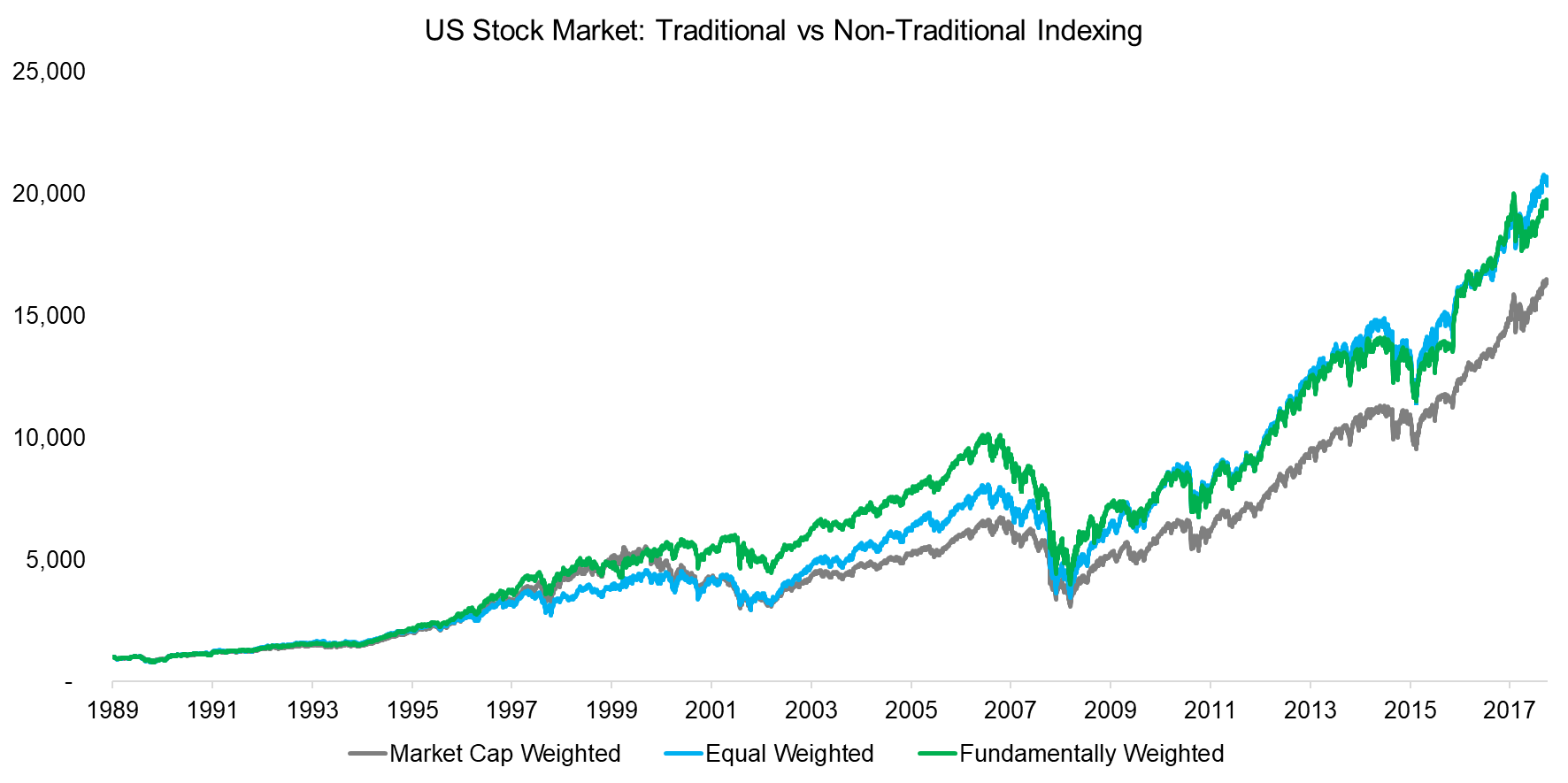Tuesdays are all about academic (and practitioner) literature at Abnormal Returns. You can check out last week’s links including a look at a big research piece showing the distortions caused by inflation to corporate earnings.
Quote of the Day
"Here I will just remind everyone, including myself, that this is all much harder to do in real life than many think before experiencing these times."
(Cliff Asness)
Chart of the Day

A look at the performance of equal and fundamental-weighted indices vs. market cap since 1990. (via @factorresearch)
Efficiency
- Academics do help make markets more efficient. (mrzepczynski.blogspot.com)
- The more skilled active managers are, the less of it we need. (papers.ssrn.com)
Fixed income
- Investors have historically not demanded enough compensation for credit risk. (blog.thinknewfound.com)
- A summary of recent research on the yield curve. (capitalspectator.com)
Factors
- Value investing has historically underperformed during periods of technological transition. (osam.com)
- "Yang and Zhang found that extreme absolute strength stocks are more likely to have momentum reversals, hurting the profitability of momentum strategies." (alphaarchitect.com)
- Trade execution plays a big role in realized factor returns. (institutionalinvestor.com)
- The evidence for the size effect keeps getting weaker. (alphaarchitect.com)
Research
- Protective puts are not all that great a tail-risk strategy. (alphaarchitect.com)
- The evidence on the effectiveness of activist investors is mixed. (investorschronicle.co.uk)
- Why do sell-side analysts consistently underestimate earnings? (review.chicagobooth.edu)
- How much are subscription lines of credit distorting private equity fund returns? (institutionalinvestor.com)
- Four ways in which ETFs could represent a systemic financial risk. (esrb.europa.eu)
- Why Monte Carlo simulations with static spending rules in retirement way oversimplify things. (blog.thinknewfound.com)








